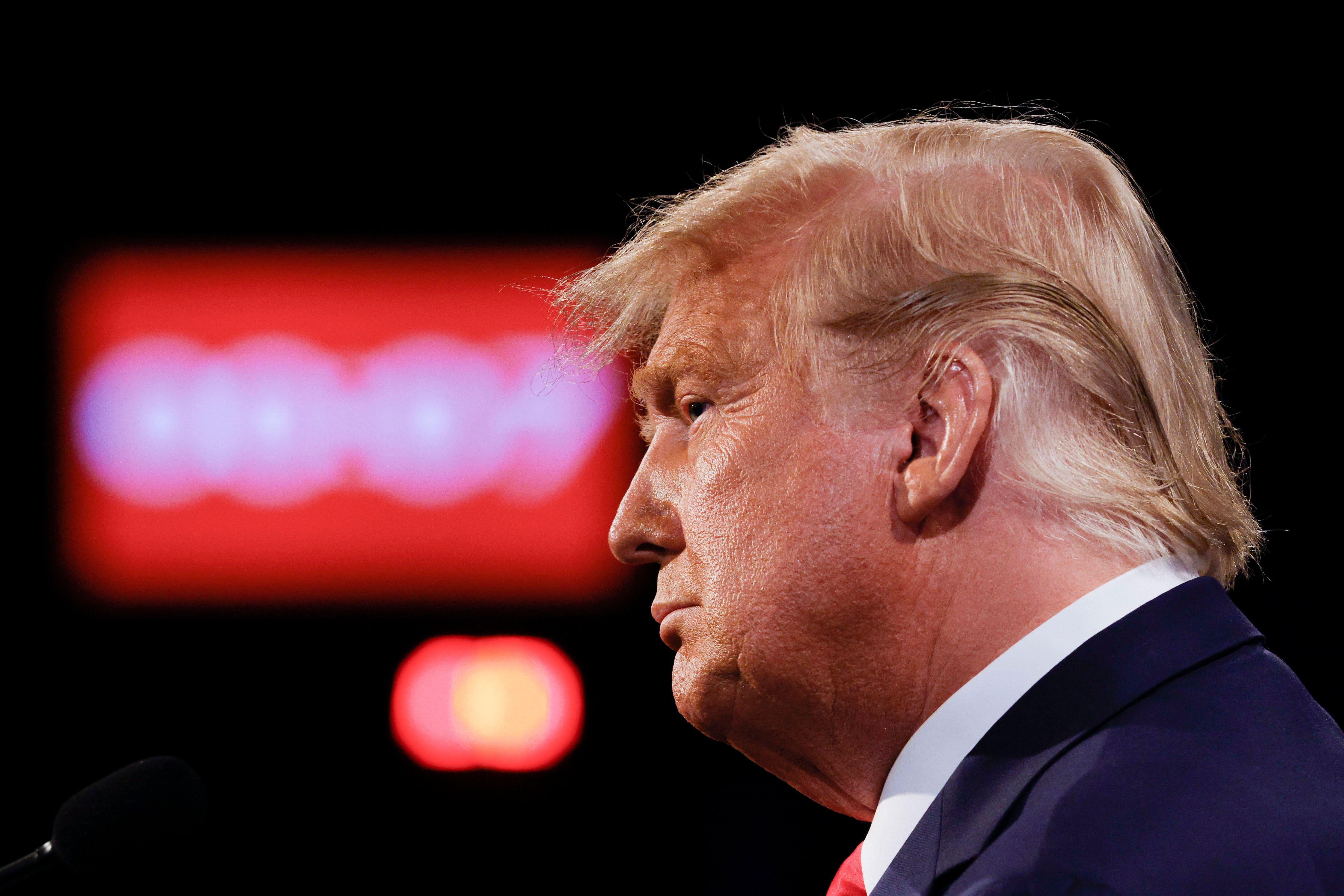For only the second time in 12 years of presidential debates, climate change did come up as a point of discussion, during Thursday night’s face-off between President Donald Trump and former Vice President Joe Biden—but only near the very end. When asked by moderator Kristen Welker how he would “combat climate change and support job growth,” Trump immediately launched into one of his favorite bugbears:
The Paris accords, I took us out because we were going to have to spend trillions of dollars and we were treated very unfairly. They were going to take away our businesses. I will not sacrifice tens of millions of jobs, thousands and thousands of companies, because of the Paris accords. It was so unfair. … It would have destroyed our businesses.
The “businesses” Trump was referring to were, specifically, fossil fuel–based industries, regulations on which he decried. In the same breath, he managed to lie about the viability of renewable energy sources, harp on the cost of Joe Biden’s climate plan, claim the Democratic nominee wants “tiny windows” or something, and go after him for opposing fracking (a practice the former vice president went on to defend, despite its clear environmental harms). In other words, our president presented the false choice between big, beautiful American jobs in a thriving economy and grappling with the existential crisis of our lifetimes as an ultimatum: Elect me and ignore climate change, or lose your job.
If Trump actually cares about fossil fuel companies, he has a funny way of showing it. No matter how cozy his relationship with fossil fuel executives, no matter his special tax cuts for the industry, no matter his subsidies and regulation rollbacks—Trump cannot save an industry that is collapsing all on its own. Demand for oil has sharply dropped over the course of the pandemic, with several energy companies filing for bankruptcy and bleeding more than 100,000 jobs this year alone, leaving workers with little on which to fall back. Billions of dollars in federal coronavirus relief money that went to such corporations was pocketed by executives instead of aiding the workers who needed it most. Fossil fuel clingers, already seeing the writing on the wall for a sustained oil demand drop in the future, are attempting to pivot to mass plastic production and dumping. And for all the scaremongering about banning fracking, well, someone should tell Republicans that Pennsylvania voters now have a net negative view on the practice. Besides, it’s a bit redundant to “ban” an industry that was rapidly imploding by itself even before the pandemic, no government intrusion needed.
To Biden’s credit, he did mention, accurately, that wind and solar are among the fastest-growing industries in America and provide well-paying, plentiful jobs. His climate plan has indeed been touted by labor groups, as he claimed, because he understands that investing in such industries and thereby also preparing for climate disaster will not only create more jobs, but will also provide fossil fuel workers—coal miners, oil riggers, frackers, power plant laborers—a just transition to the new energy era that they deserve.
This has to be done. To preserve an at least somewhat habitable civilization over the coming decades, we need to let go of fossil fuels and to help workers and industry towns with the adjustment. Doing both is necessary for the environment and the economy, full stop. Again to his credit, Biden took a stance on this, stating he would “transition from the oil industry” and implying he would subsidize solar and wind energy resources instead of oil, something both he and Trump declared to be a “big statement.” Debate watchers claimed on Twitter that this would hurt Biden in oil-rich Texas, where he appears to have a slight lead according to certain polls (though not all)—and indeed, Texans like Gov. Greg Abbott and Energy Secretary Rick Perry (remember that guy?) immediately attacked this line with glee.
But, as other climate writers have noted, Biden’s line was hardly that bold of a threat. Even oil companies and other polluters are publicly addressing—in statements and announced initiatives—the need to shift away from fossil fuel reliance and reach net-zero emissions in the future. At this point, this transition is not some fringe leftist plot but a mainstream position understood and supported by many, many Americans. Plus, as Texas Monthly editor Christopher Hooks tweeted, the state’s oil workers well know the industry is never going back to its glorious booms; not to mention, Texans are already having notable economic success with the development of wind turbine technology.
The key thing to note is: Fossil fuels are dying, and Americans (and the world) can either go down with a death grip on them or put resources toward making a more sustainable world. American voters day by day are seeing how climate change is affecting their lives, from the wildfires burning California to the gargantuan storms hitting the South to the “cancer alley” industrial pollutants in Louisiana and elsewhere, and they’re responding accordingly. They overwhelmingly support some version of the Green New Deal, the plan touted by the people Trump called the scary “AOC plus three” team at the debate. These majorities see that Donald Trump is not, as he boasts, an environmentally conscious president. Left-behind fossil fuel workers have seen their prospects further dim as they see Trump neither helping their places of employment nor their own career prospects. There has been a decadeslong, depressingly successful billionaire-funded initiative to tamp down efforts to fight climate change—but it hasn’t blinded the public from the everyday realities they witness for themselves.
The real choice for American voters is ultimately: investment in a workable green economy, or a hastened apocalypse, both environmental and economic in its devastation. No short-term oil bailouts will change this. But voters seem to understand this better than Trump and the GOP do.

